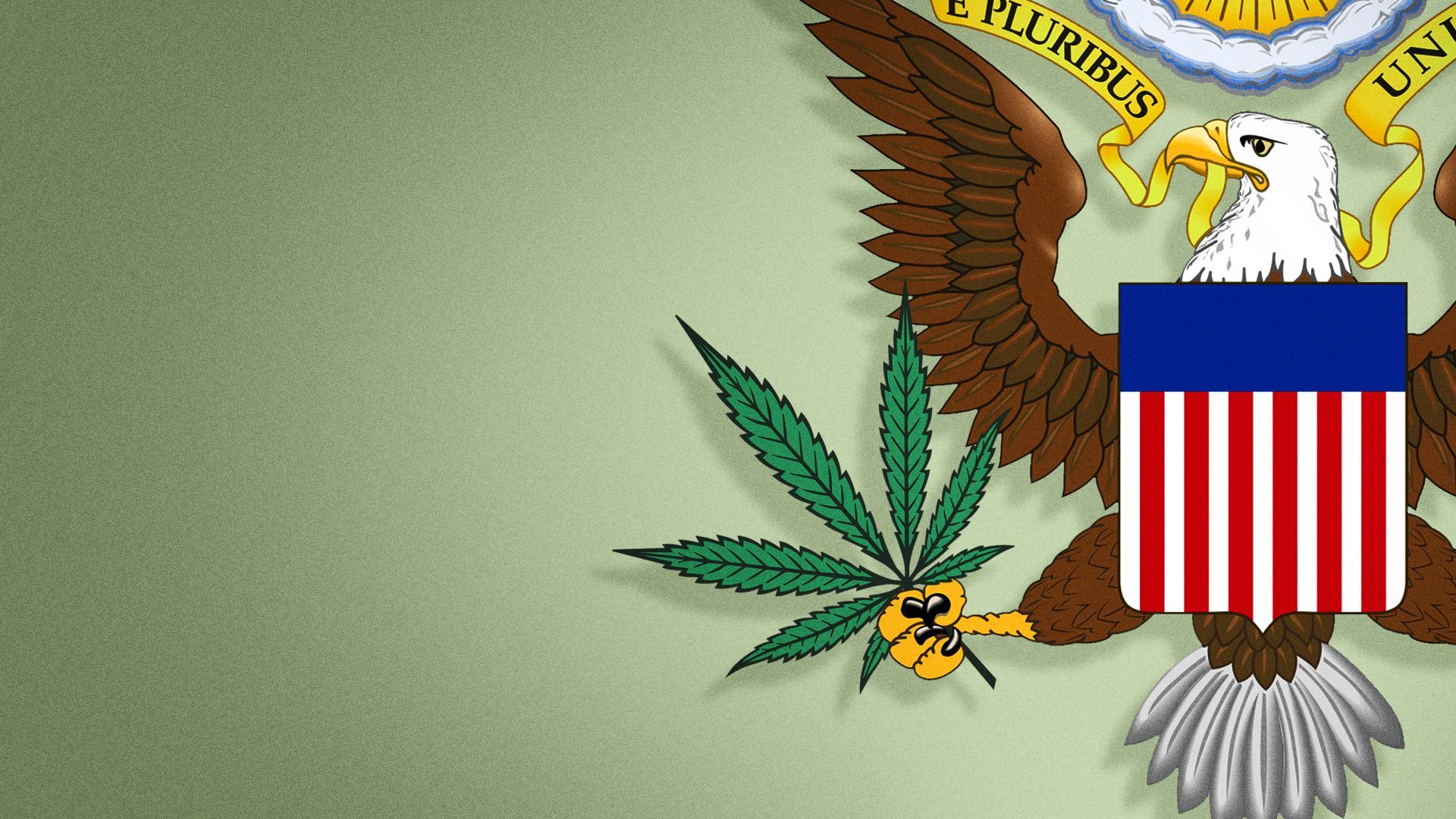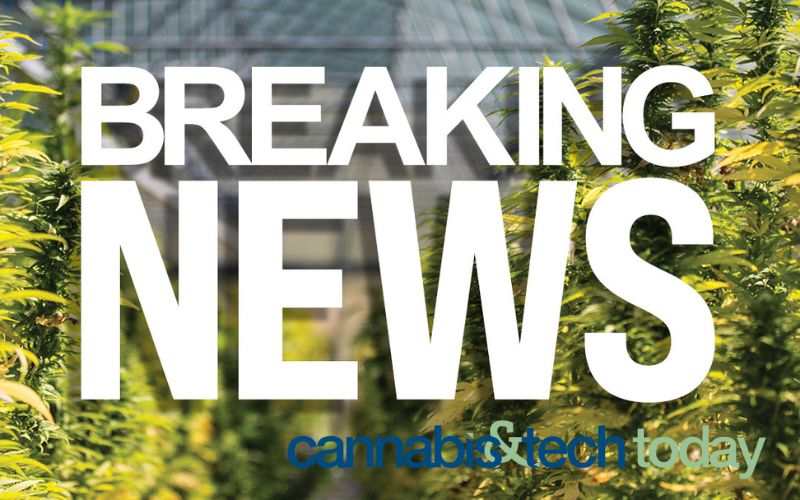Then there’s the United States’ international treaty obligations, chief among them the 1961 Single Convention on Narcotic Drugs, which requires the criminalization of cannabis. In 2016, during the Obama administration, the DEA cited the U.S.’ international obligations and the findings of a federal court of appeals in Washington in denying a similar request to reschedule marijuana.
WASHINGTON (AP) — The U.S. Drug Enforcement Administration will move to reclassify marijuana as a less dangerous drug, The Associated Press has learned, a historic shift to generations of American drug policy that could have wide ripple effects across the country.
The proposal, which still must be reviewed by the White House Office of Management and Budget, would recognize the medical uses of cannabis and acknowledge it has less potential for abuse than some of the nation’s most dangerous drugs. However, it would not legalize marijuana outright for recreational use.
- Once OMB signs off, the DEA will take public comment on the plan to move marijuana from its current classification as a Schedule I drug, alongside heroin and LSD. \
- It moves pot to Schedule III, alongside ketamine and some anabolic steroids, following a recommendation from the federal Health and Human Services Department.
- After the public comment period and a review by an administrative judge, the agency would eventually publish the final rule.
READ MORE
It comes after President Joe Biden called for a review of federal marijuana law in October 2022 and moved to pardon thousands of Americans convicted federally of simple possession of the drug. He has also called on governors and local leaders to take similar steps to erase marijuana convictions. //
The election year announcement could help Biden, a Democrat, boost flagging support, particularly among younger voters.
Biden and a growing number of lawmakers from both major political parties have been pushing for the DEA decision as marijuana has become increasingly decriminalized and accepted, particularly by younger people. A Gallup poll last fall found 70% of adults support legalization, the highest level yet recorded by the polling firm and more than double the roughly 30% who backed it in 2000.
- Schedule III drugs are still controlled substances and subject to rules and regulations, and people who traffic in them without permission could still face federal criminal prosecution.
Jack Riley, a former deputy administrator of the DEA, said he had concerns about the proposed change because he thinks marijuana remains a possible “gateway drug,” one that may lead to the use of other drugs.
“But in terms of us getting clear to use our resources to combat other major drugs, that’s a positive,” Riley said, noting that fentanyl alone accounts for more than 100,000 deaths in the U.S. a year.
On the other end of the spectrum, others argue marijuana should be treated the way alcohol is.
“While this rescheduling announcement is a historic step forward, I remain strongly committed to continuing to work on legislation like the SAFER Banking Act as well as the Cannabis Administration and Opportunity Act, which federally deschedules cannabis by removing it from the Controlled Substances Act,” Senate Majority Leader Sen. Chuck Schumer of New York said in a statement. “Congress must do everything we can to end the federal prohibition on cannabis and address longstanding harms caused by the War on Drugs.”
That’s helped fuel fast growth in the marijuana industry, with an estimated worth of nearly $30 billion. Easing federal regulations could reduce the tax burden that can be 70% or more for businesses, according to industry groups. It could also make it easier to research marijuana, since it’s very difficult to conduct authorized clinical studies on Schedule I substances. . ."
Biden gives cannabis industry a badly needed win

Illustration: Maura Losch/Axios
Why it matters: The U.S. cannabis industry needed a win, just days after one of its best-known companies, MedMen, filed for bankruptcy protection.
US Agency Recommends Reclassifying Marijuana as Less Dangerous Drug
Several steps, and debate, remain before move becomes finalEasing restrictions on pot could help Biden with young voters
Pot Stocks Surge on Report DEA Set to Reclassify Marijuana
DEA PLANS TO RECLASSIFY MARIJUANA: UNDERSTANDING THE IMPACT
This initiative, revealed by sources to The Associated Press, involves moving marijuana from Schedule I — a category reserved for the most dangerous drugs like heroin and LSD — to Schedule III, which includes substances like ketamine and some anabolic steroids.
This historic move, pending review by the White House Office of Management and Budget, signals a monumental shift in perception towards cannabis, recognizing its medical benefits and lower abuse potential compared to more hazardous substances.
Pros of Reclassifying Marijuana
- Medical Recognition and Reduced Stigma: Reclassifying marijuana reflects an acknowledgment of its medicinal properties and paves the way for broader acceptance and reduced societal stigma. This could dramatically change public perception and enhance its legitimacy as a medical treatment option.
- Economic Growth: The change is expected to boost the already flourishing cannabis industry, which boasts an estimated value of nearly $30 billion. By easing some of the draconian regulations tied to Schedule I substances, the industry could see reduced tax burdens and increased profitability.
- Enhanced Research Opportunities: Transitioning to a lower schedule makes it easier for researchers to conduct studies on marijuana. Current restrictions heavily limit research on Schedule I drugs, so this change could lead to new discoveries about the drug’s benefits and risks.
- Political and Public Momentum: This move mirrors growing public support for marijuana legalization, as evidenced by recent polls. Politically, it could provide a boost to lawmakers who advocate for reform, reflecting the will of the electorate and potentially garnering support among younger voters.
Cons of Reclassifying Marijuana
- Regulatory and Compliance Challenges: Although reclassification to Schedule III reduces some regulatory burdens, it imposes others, such as requiring dispensaries to register with the DEA and adhere to strict oversight, which could prove cumbersome for both regulators and the industry.
- Gateway Drug Concerns: Critics, including former DEA officials, warn that marijuana could still serve as a gateway to more dangerous substances, arguing that the risks associated with its broader use remain significant.
- International Legal Conflicts: The U.S. is bound by international treaties that require the criminalization of cannabis. Reclassifying marijuana could potentially conflict with these agreements, complicating international relations and U.S. treaty obligations.
- Potential for Unintended Consequences: Loosening marijuana restrictions could have unforeseen effects in both law enforcement and public health spheres, possibly complicating efforts to combat other drug-related issues.
- Legal and Political Controversy: The DEA’s proposal might ignite legal challenges and political opposition, particularly from segments that view the current drug classification system as appropriate. Such opposition could fuel ongoing debates and policy clashes.
++++++++++++++++++++++++++++++++++++++++++++++++++++++++++++++++++++++++++
.jpg)








No comments:
Post a Comment